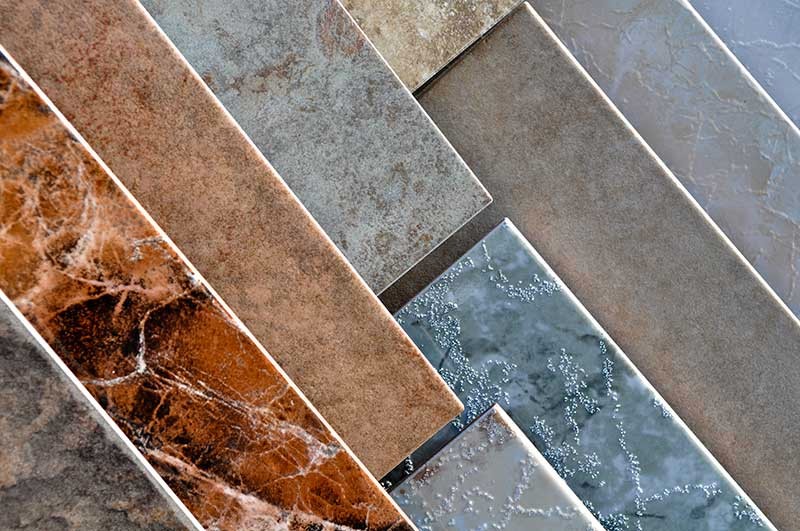Porcelain tiles are a very durable flooring option, making them ideal for high-traffic areas. They’re also relatively easy to clean and waterproof, so they can be used in bathrooms and kitchens.
Porcelain tiles come in many different colors and patterns, from classic white to metallics, wood grain and even slate. They are available in a range of styles from traditional to contemporary, so you can find the perfect look for your home.
Porcelain is made from a mixture of clays and minerals, including feldspar. The composition varies depending on the manufacturer and the design of the tile. This means that some porcelains are more stain resistant than others.
Here are some of the most common types:
Ceramic tile: This is often considered the basic type of porcelain tile because it’s inexpensive and easy to install. It comes in a wide range of colors and glazes, giving you plenty of options when choosing your kitchen backsplash or bathroom flooring. Ceramic tiles also come in glazed or unglazed finishes that allow moisture to pass through them more easily than other types of porcelain tile do.
Stone effect porcelain: These tiles give the look of natural stone without all the maintenance that comes with it — they’re low-maintenance surfaces that can be cleaned with soap and water (no harsh chemicals required). Stone effect porcelains have a rough surface texture that resembles natural stone but doesn’t require sealing.
Glazed porcelain tile
The most common type of porcelain tile is glazed. This means that it has been painted with a coating that gives it color and makes it waterproof. Glaze can also protect against stains and scratches, making glazed porcelain tiles ideal for high-traffic areas like kitchens and bathrooms.
Unglazed porcelain tile
Unglazed porcelain tiles do not have a coating applied to them during manufacture. Instead, they are left with their natural appearance so that they can be used in more decorative areas where their imperfections would not be an issue. Unglazed porcelains tend to be less expensive than glazed ones because they do not require any additional treatment during production or installation.
Enameled porcelain tiles – These tiles have a glossy finish which makes them ideal for exterior installations where they will be exposed to rain, snow, salt water or other corrosive elements.
Natural stone porcelain tiles – These are typically made from natural stones such as marble or granite that have been crushed into fine powders then mixed with other materials like cement for strength and durability before being molded into shape using high-temperature firing processes like those used for making glazed porcelains.
Textured porcelain tile is made with uneven surfaces or bumps, giving it texture similar to marble or granite without the high price tag associated with those materials. Textured porcelain tiles look great in kitchens because they help prevent slips on wet floors around sinks or kitchen


